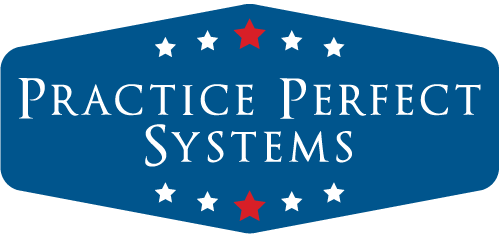Dr. Robert Cialdini first proposed 6 principles that govern how people make decisions in the 1984 Best Seller, “Influence.” When I became aware of the science, I immediately began incorporating them into my practice. Perhaps that’s why my treatment acceptance rate was double the national average of a pitiful 35%.
Today, based on research, there are 7 principles, and I am now a “Certified Practitioner” and a founding member of the Cialdini Institute, just as I was a founding member and a Fellow in the American Academy for Oral Systemic Health. I’ve connected the dots between the oral-systemic world and the psychology of decision-making.
In the following several blogs, I will share how you too can incorporate these research-based tools to help your patients make better decisions for their oral and overall health.
The 7 principles are as follows:
- Reciprocity: People feel obliged to give back to others when they’ve been given something perceived as positive such as a compliment, gift, or service.
- Scarcity: People want more of the things they can have less of.
- Authority: People follow the lead of credible, knowledgeable experts or celebrities.
- Consistency: People prefer being consistent with things they have previously said, done, or committed to.
- Liking: People tend to say yes to those they like.
- Social Proof: Particularly, people that are uncertain will look to the actions and behaviors of others to determine their own.
- Unity: People tend to trust those with a shared identity.
The principles can be grouped as those that Cultivate Relationships, Reduce Uncertainty, and Motivate Action. I’ll discuss each principle within these groups and how you, the practitioner, can use them to help your patients move towards the healthcare you know they benefit from.
CULTIVATING RELATIONSHIPS
There’s no question that there is less trust everywhere in our society today than ever before. By cultivating relationships, trust is gained and banked in a “Trust Account” that can yield dividends for both the practice and the patient.
The 3 Principles involved here are Reciprocity, Liking, and Unity. It answers the question in a patient’s mind, “Why should I listen to you?”
RECIPROCITY:
The greatest gift a person can give is a warm, genuine smile. Next, is using people’s proper names and titles, pronounced properly. These simple, common-sense gifts should not be taken for granted. Both smiles and names are regularly abused in healthcare and other settings.
Face masks are an impediment to the easiest form of reciprocity, a genuine smile, which is transmitted using all the facial muscles. I asked Dr. Cialdini during a recent meeting if there was any research on how the use of Botox affected people’s perception of their smiles. He didn’t know. But, I feel that a cardboard forehead and area above the eyes can make a smile appear false.
So, please, when you meet someone, remove your mask and show off your pearly whites.
Please check out how your patient prefers to be called. And then, how the name is pronounced. Our name is one of the most pleasant sounds we can hear. How it is pronounced by others who the patient respects, like family, makes the name even more powerful.
It’s not uncommon for patients to be given gifts in the hygiene room. But if one wanted to use such a gift to initiate the principle of Reciprocity, it would be given before any request would be made.
Why not consider giving the patient a gift at the beginning of a hygiene session?
Of course, sometimes, a patient might require additions to the hygiene packet based on their individual needs. Such an addition to the gift should come immediately before making another request, such as compliance with better hygiene or scheduling the next appointment.
LIKING and UNITY:
I lump these together because they are connected. By finding commonalities, one can activate each of these principles, encouraging people to develop trust. The more people identify with their healthcare provider, the more confidence they have that they will be treated well.
In general, hygienists tend to deploy these principles better than most providers. They tend to be more “chatty,” finding out more about patients’ families, hobbies, and vacations. This is simple relationship building through a desire to know more about the patient. That’s what every team member and doctor should emulate. By doing so, relationships are strengthened, and trust is increased.
How much do you know about your patients? Do you do a Google search? Do you look them up on social media?
When I recommend this, I often hear that it’s an invasion of privacy. Really? I can guarantee that patients are minimally Googling you.
By using the principles of Reciprocity, Liking, and Unity, practices can cultivate relationships and make significant deposits of TRUST in the bank.
In subsequent blogs, I’ll discuss how the other 4 principles can be used to help patients say yes to your best care. If you’re eager to find out more, you too can become a Certified Practitioner of Ethical Influence. Check out the official Certification program.
To more effective INFLUENCE,
Michael


- The Hidden Threat to Dental Implants: Why Ignoring Bacteria is a Risky Gamble – Part 2 - March 14, 2025
- The Hidden Threat to Dental Implants: Why Ignoring Bacteria is a Risky Gamble – Part 1 - February 28, 2025
- A Competitive Advantage – Part Two - November 8, 2024


